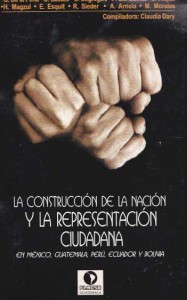 The December 1996 peace settlement in Guatemala agreed a series of institutional reforms in order to recognize the rights of the country’s indigenous peoples: some 23 ethno-linguistic groups which make up 60% of the overall population. This article explores the relationship between pluriculturalism, citizenship, democracy and law in the contemporary politics of Guatemala. While territorially autonomous regions or separate legal jurisdictions are often proposed as a means to ensure indigenous rights, I argue that within a framework of postconflict reconstruction, integration with a measure of autonomy for democratically organized communities is the ideal. This is linked to development of an integrative form of citizenship which combines both social membership and identity and rights. Finally I argue that support for pro-active efforts to challenge the legacies of authoritarianism, militarization and inequality will be necessary in order to build democracy, build a culture of citizenship and increase justice.
The December 1996 peace settlement in Guatemala agreed a series of institutional reforms in order to recognize the rights of the country’s indigenous peoples: some 23 ethno-linguistic groups which make up 60% of the overall population. This article explores the relationship between pluriculturalism, citizenship, democracy and law in the contemporary politics of Guatemala. While territorially autonomous regions or separate legal jurisdictions are often proposed as a means to ensure indigenous rights, I argue that within a framework of postconflict reconstruction, integration with a measure of autonomy for democratically organized communities is the ideal. This is linked to development of an integrative form of citizenship which combines both social membership and identity and rights. Finally I argue that support for pro-active efforts to challenge the legacies of authoritarianism, militarization and inequality will be necessary in order to build democracy, build a culture of citizenship and increase justice.
(1999) “Rethinking Citizenship: Legal Pluralism and Institutional Reform in Guatemala,” Citizenship Studies, Vol.3 (1): 103-118.